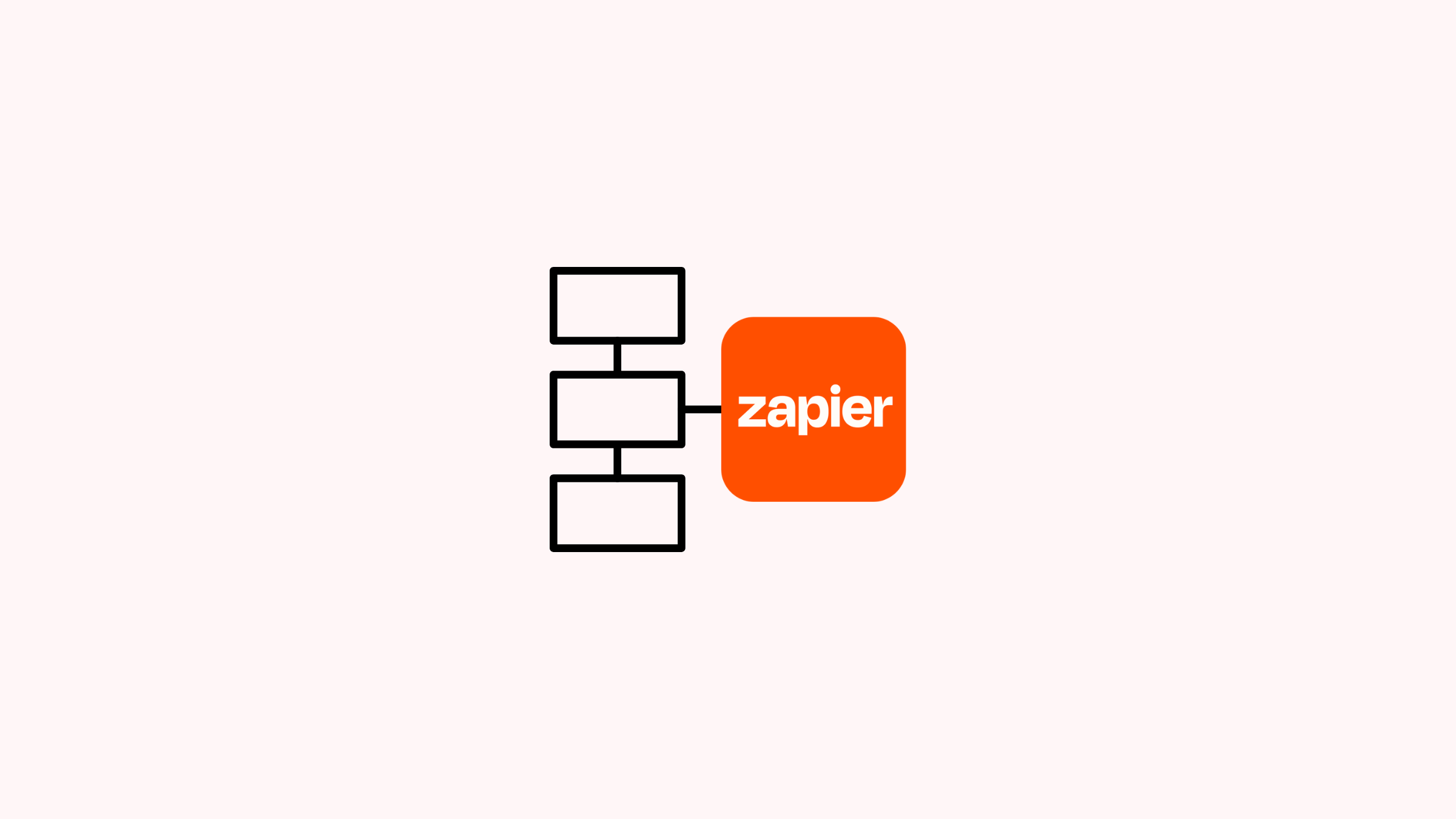Updating CRM Systems: Why Automation is the Go-To Solution

A CRM system is an essential part of a functioning business—but you need to constantly feed it data for optimum results. Read on to find out why updating your CRM system should be an unskippable part of your business, why it can be challenging, and how automation can make updating your CRM simple, smooth, and stress-free.
Why Maintain an Updated CRM System?
With over 91% of companies with 10+ employees using a CRM system, chances are high that your business uses one. If you use a CRM (customer relationship management) software, you’ve found your business’s best friend. But letting your system gather dust diminishes your CRM’s awesome powers and devalues your investment. Here are some reasons you’ll want to keep updating your CRM system:
Enhanced Customer Relationships
Customer relationships require strategic nurturing. You want to target your clients where they’re at in their sales journey, but with outdated data, your sales team’s efforts aren’t hitting their mark.
Here’s an example: If you call a prospective lead without updating your CRM, your team won’t know to follow up—missing the opportunity for a nurture email, a touchpoint on LinkedIn, or a complimentary gift. That’s another lead stagnating in your sales funnel instead of becoming a loyal customer.
You need your CRM data to work for you. Update CRM data so you can reply to customers promptly, communicate personably, and propose offers insightfully. Then watch as you clinch an astonishing number of sales.
Accurate Sales and Marketing Insights
Seeing the bigger picture is essential if you want to make judicious business decisions. Your CRM platform can generate real-time stats about your customers and sales and forecast future revenues, helping you strategize for success. In fact, 65% of businesses using CRM systems saw an increase in their sales quota.
If your CRM was last updated weeks or months ago, your stats will be off—and so will your marketing strategy.
Streamlined Communication between Team Members
You need everyone on the same page for things to run smoothly. Without a platform where team members update their progress, miscommunication snags are inevitable, leading to time-wasting, poor business management, and reduced customer service.
Updating your CRM means everyone sees the most recent data at any time, so your team is working together for maximum productivity.
Compliance with Privacy Regulations
Your CRM helps you digitally record customer consent—along with important info like the data source and the legal basis for the data storage. If that isn’t updated, you may be infringing on privacy regulation laws.
Updating your CRM: the Humps and Hurdles
It doesn’t take long for your CRM system to go from effective to outdated. For your software to work at its best, you need to fuel it with data. But many business owners find constant updating unattainable. Here are some of the common humps they face:
Time Constraints
There’s so much to fit between nine and five. Somehow, updating customer information falls to the bottom of your to-do list between “fix watercooler” and “employee satisfaction surveys.”
Plus, if your sales team is under pressure to meet deadlines or quotas, filling in tedious CRM data deprives them of time that could be used for face-to-face meetings or making sales calls.
Limited Resources
Some business owners have been forced to shelve the update CRM task because of a lack of resources.
To update information in your CRM, you may need new software, new integrations, or staff training—commodities that might not fit within your budget. Plus, if you’re a small business, you may not have enough manpower to spare, or your staff may lack the necessary IT skills.
Challenges of Manual Data Entry
We’ll say it like it is: Manual data entry is boring.
Even if your staff has been allocated time for it, updating your CRM system probably won’t be high on their list of favorite tasks—even if you incentivize them with a new coffee machine.
There’s another snag here: when your team does get down to the mindless data entry, it won’t be 100% accurate. Unless you employ a team of robots, human error is unavoidable. That inaccurate info will distort your sales forecasting and hamper customer relationships.
Lack of User Adoption
It’s a painful but more-than-common scenario: you’ve invested in a robust CRM, created a CRM implementation plan to introduce it into your business, and delivered training to your team. But no one seems to share your enthusiasm.
Employees are griping about changing their work habits, or they’re insisting that the system demands too much technical know-how. You want your employees to keep updating the CRM data so you can reap its full value—but with your diehard team, you don’t see it happening anytime soon.
How to Streamline CRM Updates: Pro Tips from the Top
As expert CRM consultants, we’ve pooled together our years of experience guiding clients in choosing, implementing and leveraging the power of CRMs to give you top tips on how to update CRM systems seamlessly.
- Make sure your employees know who’s responsible for which updates. Without clear task assignments, some customer information is guaranteed to slip through the cracks.
- Make updating information in your CRM a daily habit. Set calendar reminders so you don’t forget—and the task will embed itself in your everyday routine.
- Make the data entry easier by using ready-made templates or forms. Streamlining the process will also make it easier to onboard your team.
- The best route? If your CRM has in-built automation options, make sure you’re using them. Automate tasks, reminders, and emails, for effortless CRM updating.
- If your CRM doesn’t come with automation options, use third-party software like Zapier to work automation magic. Integrate your CRM with other apps (Zapier offers 5,000+ integrations) to banish manual updates for good.
Why Automate CRM Updates?
Bottom line: automation will solve all your updating CRM woes. Time constraints, human error, or a reluctant team—none of those are issues when your CRM auto-updates. Here’s what you’ll gain:
- Time: nobody will have to spend hours filling out endless blanks
- Peace of mind: updating your CRM won’t even occupy brain space if it’s happening automatically
- A comprehensive trove of data: integrating your data sources with your CRM system means no piece of info is left behind
- A happier, more productive team: when you automatically update CRM systems, your team can focus on work that matters
- Control: you get an accurate picture of your business anytime you want it, empowering you to make those awesome, money-spinning decisions
- Convenient workflows: with Zapier, you can adjust your zaps at any time to suit your business’s changing needs. You can even edit a live zap with the new Drafts feature. Leverage your workflows so they work for you
- Prompt notifications: automatically notify your team about important changes in your CRM, so they never drop a lead again
Make Updating CRM Systems Painless with Automation
You want to automate CRM updates like your business depends on it—because it does. How can you guarantee you’re getting those automations right the first time?
At Flow Digital, we’re here to guide you. As experienced automation consultants, including a team of certified Zapier experts and expert Pipedrive consultants we’ll analyze your business and weigh up what works best for you. We’ll set up curated workflows and integrate your existing software so your CRM will never be out-of-date—and your customer relationships will grow faster than ever.
From setting up your automations for updating your CRM system to following up on your progress, we’re committed to your business’s success. Reach out to a CRM consultant today to get started.
Certified Zapier expert, premier Pipedrive partner and self-professed tech geek. Nathan has over a decade of experience helping hundreds of companies optimize their workflows, streamline processes and eliminate time-consuming tasks. Founder of Flow Digital, Nathan enjoys harnessing the power of automation to save businesses time and money.



.png)